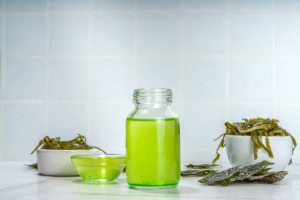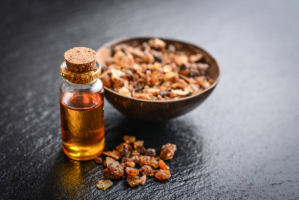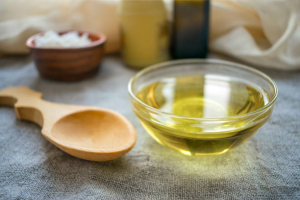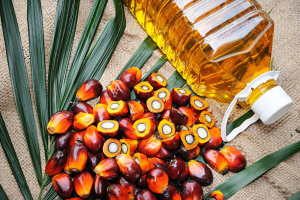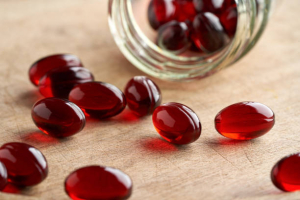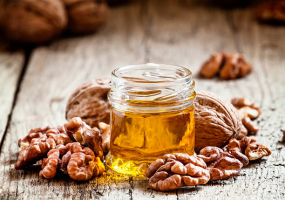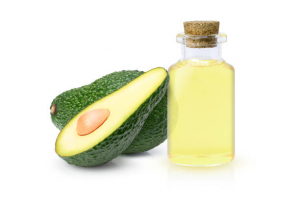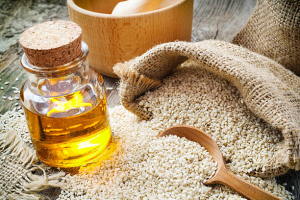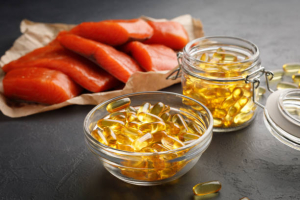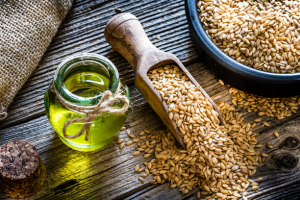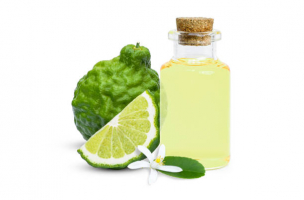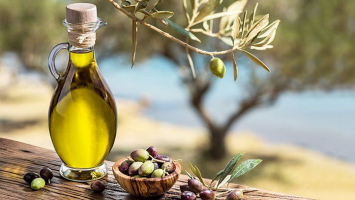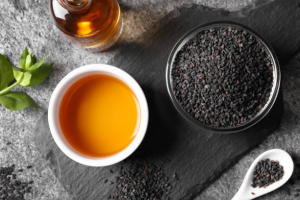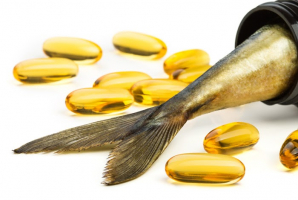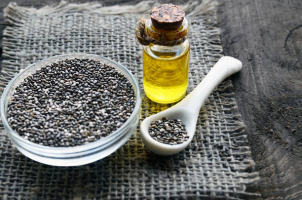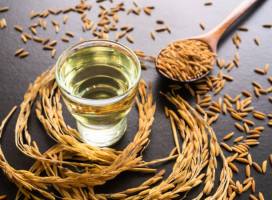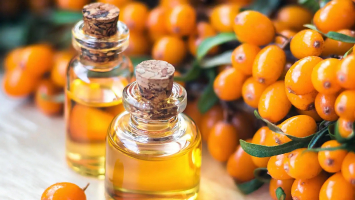Top 7 Health Benefits of Argan Oil
Moroccan cuisine has relied on argan oil for generations because of its plethora of possible health advantages as well as its delicate, nutty flavor. The ... read more...kernels of the argan tree's fruit are where this naturally occurring plant oil is obtained from. Despite being a Moroccan native, argan oil is currently utilized all over the world for a range of culinary, cosmetic, and therapeutic purposes. This article will introduce the most prominent health benefits of argan oil.
-
Fatty acids and a number of phenolic compounds make up the majority of argan oil's chemical composition. Oleic and linoleic acids make up the majority of the fat in argan oil. Linoleic acid, also known as omega-6, makes up around 29–36% of the fatty acids in argan oil, making it a strong source of this vitamin.
Despite not being necessary, oleic acid makes up 43–49% of the fatty acids in argan oil and is also a highly beneficial fat. Oleic acid, which is also included in olive oil, is well known for its beneficial effects on heart health. Additionally, vitamin E, which is necessary for healthy skin, hair, and eyes, is abundant in argan oil. Additionally, this vitamin has strong antioxidant capabilities.
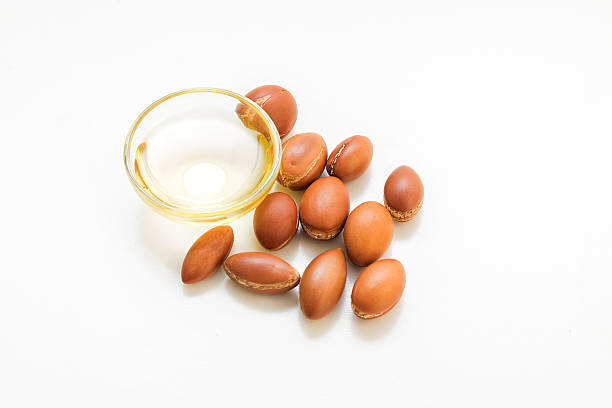
Contains Essential Nutrients 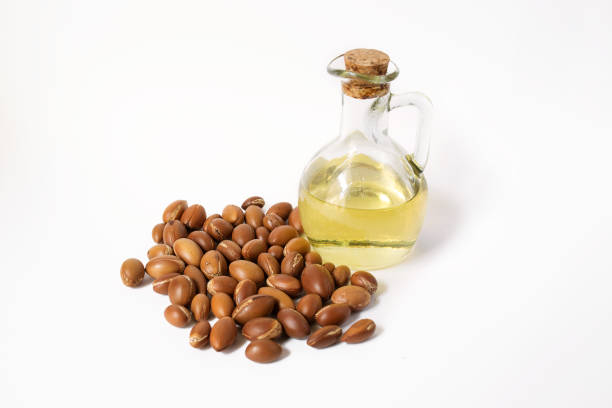
Contains Essential Nutrients -
Most of argan oil's antioxidant and anti-inflammatory properties are probably brought on by the numerous phenolic chemicals that make up this substance. Vitamin E, also known as tocopherol, is a fat-soluble vitamin that acts as a strong antioxidant to lessen the negative effects of free radicals and is abundant in argan oil. Argan oil also contains other ingredients that contribute to its antioxidant power, including melatonin, and plant sterols.
According to a recent study, mice fed argan oil before being exposed to a liver toxin that causes severe inflammation had much lower levels of inflammatory markers than mice in the control group. Additionally, some study suggests that argan oil might be used topically to lessen inflammation brought on by wounds or infections. Although these findings are promising, additional investigation is required to learn how argan oil might be utilized medicinally in people to lower oxidative stress and inflammation.
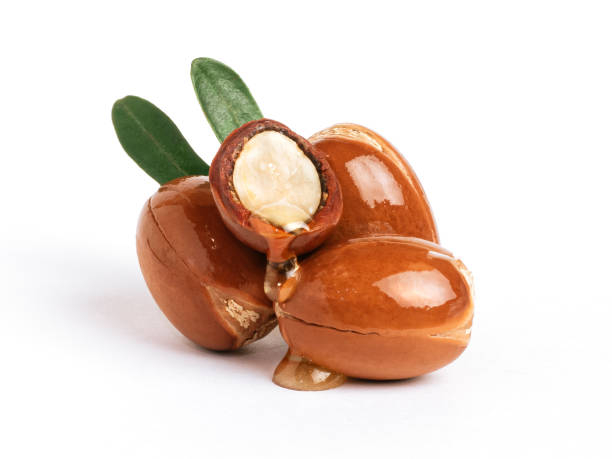
Have Antioxidant and Anti-Inflammatory Properties 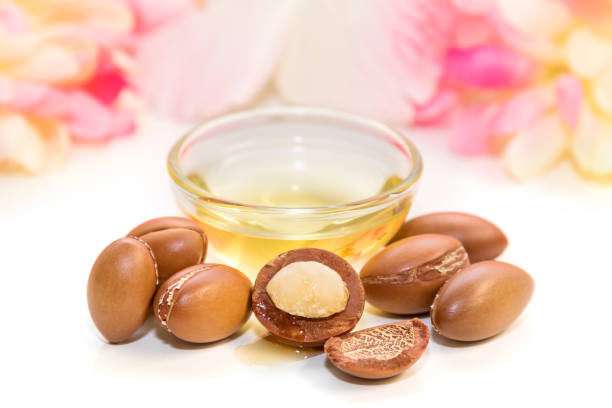
Have Antioxidant and Anti-Inflammatory Properties -
Oleic acid, an omega-9 monounsaturated lipid, is abundant in argan oil. Olive oil and avocado are two other foods that contain oleic acid, which is known to have heart-healthy properties. One small human investigation found that the ability of argan oil to lower the risk of heart disease by altering antioxidant levels in the blood was equivalent to that of olive oil.
A larger intake of argan oil was linked to lower levels of "bad" LDL cholesterol and higher blood levels of antioxidants in another small human investigation. In a research on the risk of heart disease in 40 healthy individuals, those who took 15 grams of argan oil daily for 30 days had reductions in "bad" LDL and triglyceride levels of 16% and 20%, respectively. Although these findings are encouraging, more extensive research is required to fully comprehend how argan oil may help human heart health.
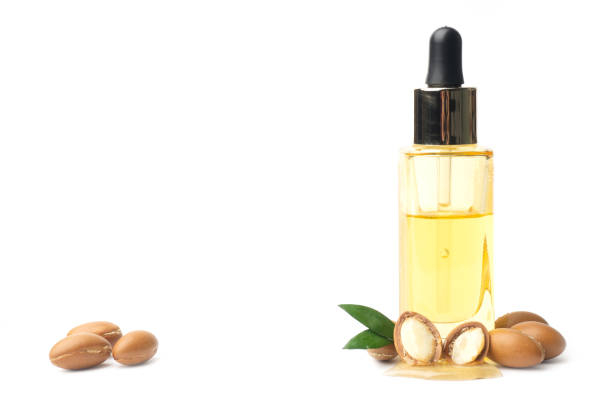
May Boost Heart Health 
May Boost Heart Health -
Argan oil may help prevent diabetes, according to some preliminary animal studies. In two trials, mice given a high-sugar diet combined with argan oil had a substantial decrease in both fasting blood sugar and insulin resistance. These studies primarily ascribed these advantages to the oil's antioxidant content. Such findings do not, however, suggest that similar outcomes would occur in people.
Certain cancer cells' growth and reproduction may be slowed by argan oil. Prostate cancer cells were treated with polyphenolic components from argan oil in one test-tube investigation. In comparison to the control group, the extract reduced the proliferation of cancer cells by 50%. A pharmaceutical-grade blend of vitamin E and argan oil boosted the rate of cell death in breast and colon cancer cell samples in another test-tube investigation. This exploratory study is promising, but further studies are required to evaluate whether argan oil may be used to cure cancer in people.
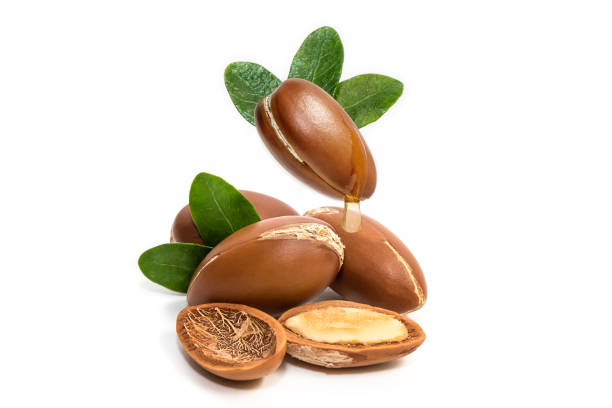
Have Benefits for Diabetes and Have Anticancer Effects 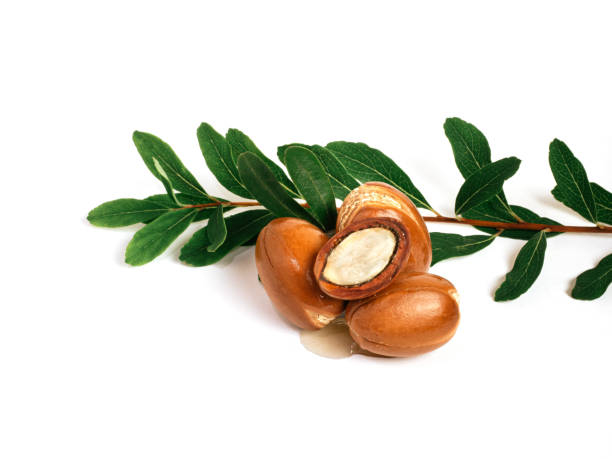
Have Benefits for Diabetes and Have Anticancer Effects -
Many skin care products now use the increasingly popular argan oil as an ingredient. According to some studies, eating argan oil may slow down aging by lowering oxidative stress and inflammation. When used directly to your skin, it may also help the preservation and restoration of healthy skin, therefore minimizing outward indications of aging. According to certain human research, argan oil can help postmenopausal women's skin become more elastic and hydrated when applied topically or eaten.
Since argan trees are native to North Africa, treating inflammatory skin disorders at home using argan oil has become more common. Even though there is little scientific evidence to support it, argan oil is widely used to treat various skin problems. Argan oil does, however, appear to include a number of antioxidant and anti-inflammatory chemicals, which may be why it appears to treat skin tissue, according to recent studies.
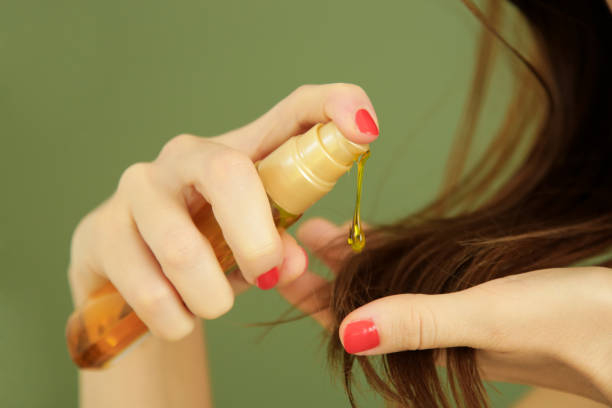
Reduce Signs of Skin Aging 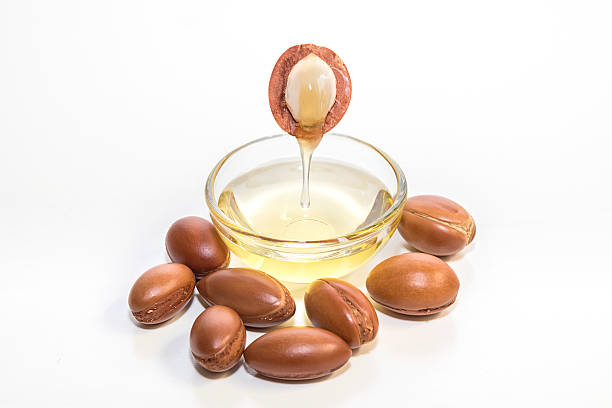
Reduce Signs of Skin Aging -
Argan oil may hasten the healing of wounds. One experiment on animals showed that using argan oil twice daily for 14 days on rats with second-degree burns significantly accelerated the healing of the wounds. Despite the fact that nothing in this data can be said to be definitive, it does point to a potential role for argan oil in tissue regeneration and wound healing.
The bulk of the fat in argan oil is made up of oleic and linoleic acids, which are essential for keeping healthy hair. Although it is frequently used topically for skin and hair, argan oil may also be useful when taken internally. In one trial, argan oil was used topically and orally to help postmenopausal women's skin retain hydration. Even while argan oil hasn't been specifically studied for its role in hair health, some research suggests that other plant oils with a similar nutritional profile may lessen split ends and other forms of hair damage.
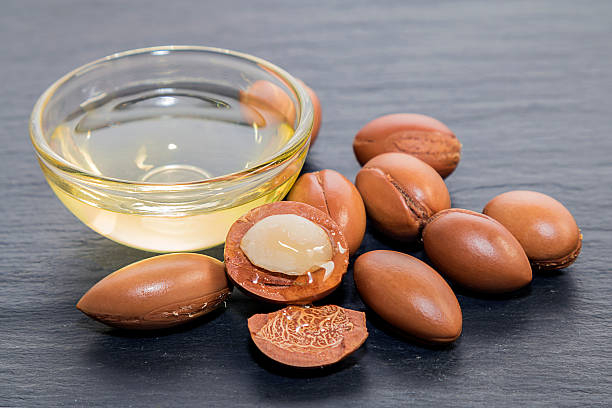
Promote Wound Healing 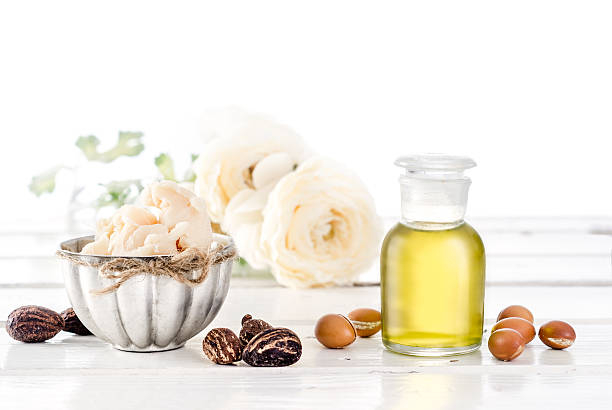
Promote Wound Healing -
Argan oil is marketed as an excellent acne treatment, but there isn't any solid scientific evidence to back this up. However, the antioxidant and anti-inflammatory properties of argan oil may help to lessen the skin's redness and irritation brought on by acne. The oil may also help to hydrate the skin, which is crucial for avoiding acne. Whether or whether argan oil can effectively treat your acne will probably depend on what caused it. Argan oil could help if you experience dry skin or overall irritability. However, argan oil probably won't offer much help if your acne is brought on by hormones.
Stretch marks are usually avoided and reduced by the use of argan oil, however, no studies have been done to support this claim. In actuality, there isn't much proof that any type of topical therapy works well to reduce stretch marks. The fact that so many individuals claim success with argan oil for stretch marks does, however, suggest that it may help decrease inflammation and improve skin suppleness.
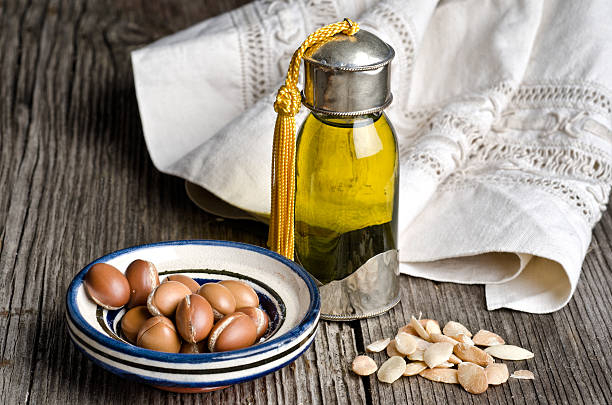
Sometimes Used to Treat Acne 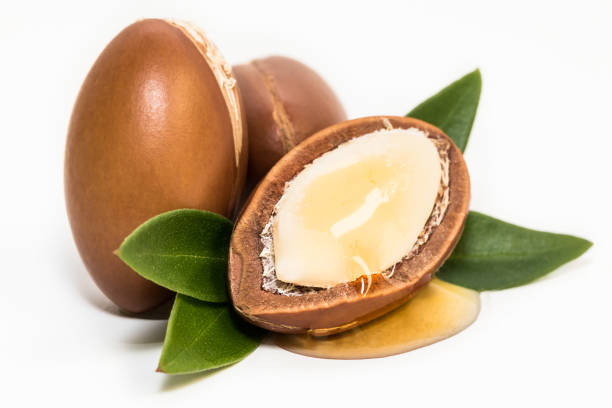
Sometimes Used to Treat Acne









